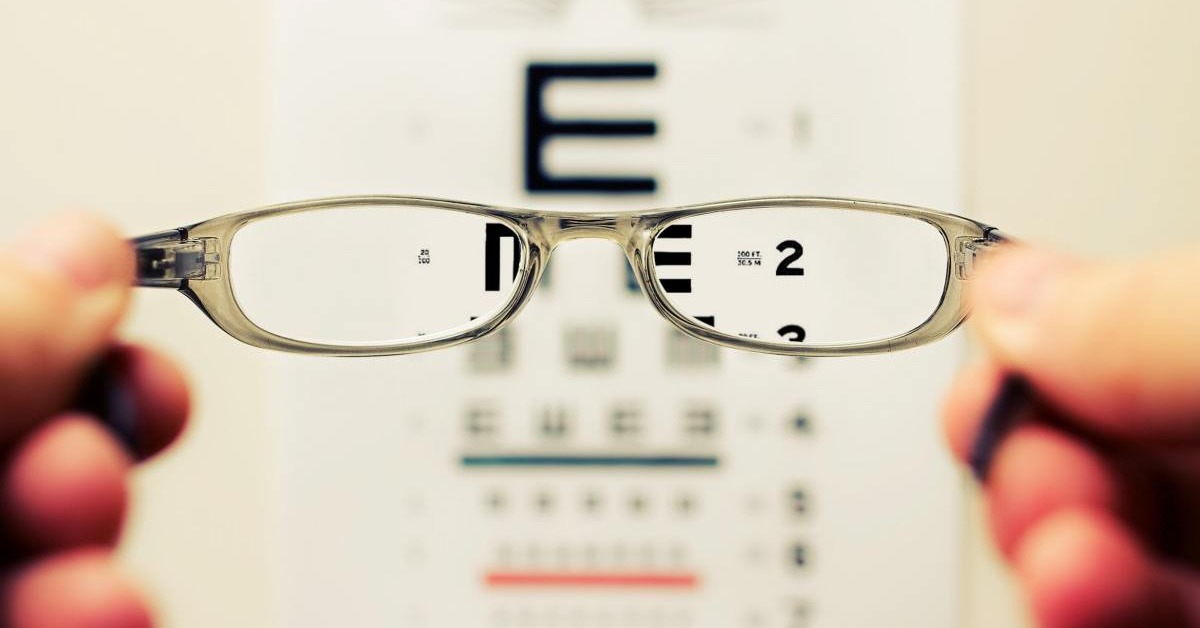
Why Become a Sports Vision Optometrist?
Sports vision optometrists work with patients at all levels, including [...]

Healthcare is perhaps the ultimate hands-on profession, but the revolution in distance learning has reached it just the same. Telehealth has made some office visits unnecessary, and a surprising number of programs now allow aspiring healthcare providers to pursue online education to become nurse practitioners, physician assistants, physical therapists and occupational therapists.
What about aspiring eye doctors? Has the distance education revolution extended to optometry programs? In this article, we ask can you get a Doctor of Optometry degree online? We also discuss:
Optometrists are the general practitioners of the eye-care world. They aren’t physicians, but they do undergo extensive training in graduate school. Optometrists have two primary responsibilities: assessing vision issues to prescribe corrective lenses, and diagnosing eye diseases, such as cataracts and glaucoma. They are not to be confused with the similar-sounding ophthalmologists, MDs who usually treat more serious eye conditions, or opticians, who fit people with glasses and contact lenses after an optometrist prescribes them.
At an optometrist’s office you’ll get peppered with questions such as, “What’s the smallest line you can read?” and “Better 1 or 2, or about the same?” Optometrists administer vision tests and conduct eye exams, checking for problems and conditions like hypertension, diabetes, and cancer. If you need glasses or contacts, they’ll write you a prescription.
A strong background in science and math is crucial to becoming an optometrist. The non-profit International Medical Aid also recommends developing soft skills to foster relationships with patients and coworkers. They include listening, communication, critical thinking and interpersonal skills.
“Optometrists, like all health care professionals, need to be proficient in soft skills,” wrote the authors of a study that documented a teaching intervention with optometry students. The study proved effective, with 90 percent of study participants reporting that it “helped in critical self-reflection and future improvement of communication and interpersonal skills.”
No. That’s the realm of the ophthalmologist, the specialists of the eye-care world. Their training to become physicians prepares ophthalmologists to perform LASIK surgery and operations to repair issues such as crossed eyes and trauma damage. Ophthalmologists are MDs; optometrists are not.
Yes. Aspiring optometrists must complete a four-year OD program. Topics covered include optometric theory and procedures, general vision therapy, geometrical and physical optics, behavioral vision and learning, health care economics and payment, health care management and practice management. An evaluation of the State University of New York (SUNY) School of Optometry showed that students spent 572.5 coursework hours on basic sciences and 1481.5 hours focused on optometry, with another 635 hours devoted to lab work and instruction on ocular disease.
Optometry students receive clinical training with a variety of patients at community health centers and other facilities. In clinical training at the New England College of Optometry (NECO) , for example, students work with primary care doctors, ophthalmologists and pediatricians. Some students also participate in a residency program after graduating from optometry school. A residency can help you develop a specialization in primary care, pediatric care, cornea and contact lenses, vision rehabilitation, or ocular disease.
Graduates must pass a series of board exams before earning a license to practice. The first exam covers basic science and ocular physiology, while the second covers treatment and diagnosis of ocular diseases. The third and final segment, a practical exam, evaluates students working directly with patients. Exam requirements vary from state to state.
Successfully completing four years of post-graduate study nets an OD. While most optometry students earn a Bachelor of Science degree first, completion of undergraduate studies isn’t necessarily required to qualify for admission. Indiana University’s School of Optometry, for example, requires at least 90 college credit hours from a list of required courses.
Finally, the answer to the question you’ve been waiting for: You can’t get an OD online yet, but you will be able to do so soon. Noodle is partnering with NECO to become the first optometry school to offer a hybrid online/in-person degree. NECO, established in Boston in 1894, is America’s oldest optometry college in continuous operation. The program will offer online classes paired with some regional clinical work.
The partners hope to fill a gap in the United States, where only 17 of 50 states have optometry schools. About 1,000 optometry positions go unfilled every year, according to NECO President Howard Purcell. The new program, expected to launch in the fall of 2023, will train optometrists with an eye toward some of them remaining in their home communities.
About 150 students enroll in person at NECO each year. The college hopes to add an additional 55 online students, starting with 25 the first year and adding 10 more each year. Online classes will cost the same as in-person classes, with students working together and independently.
A strong background in science and math is crucial to becoming an optometrist. College Gazette recommends the following for undergraduates:
These classes are essential for satisfying admission requirements and passing the Optometry Admissions Test (OAT). Go beyond these minimal requirements to boost your chance of acceptance to optometry school, College Gazette advises an additional two semesters of anatomy and physiology, a class in pre-professional health studies, and an introductory course in kinesthesiology. Students bound for optometry school often major in some form of biology, such as biology pre-med or molecular biology. That said, fulfilling the admission requirements is more important than your choice of major.
Options after optometry school include private practice, teaching and working for a government or military agency. The American Optometric Association lists a number of private practice options for practitioners:
(Last Updated on February 26, 2024)
Questions or feedback? Email editor@noodle.com

Sports vision optometrists work with patients at all levels, including [...]

Future health professionals considering the field of eyecare may well [...]

American students can choose from among 24 accredited Doctor of [...]

Roughly one in four optometry students pursue a residency after [...]

Forensic optometrists employ optometric science to assist the police in [...]
Categorized as: Optometry, Nursing & Healthcare